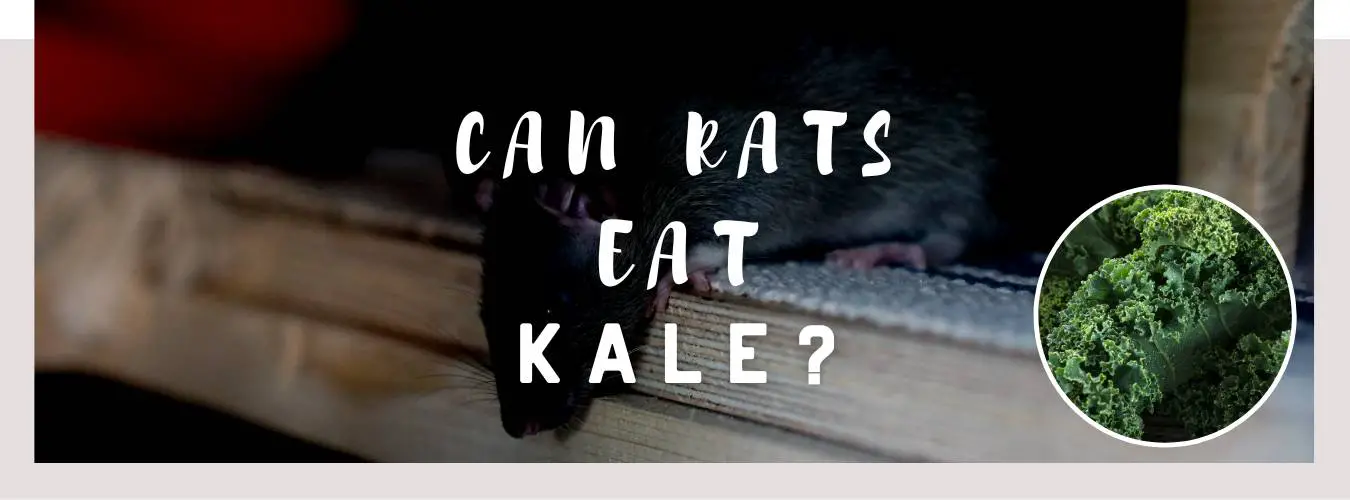
If you own or plan to get a pet rat, you may be curious as to what foods are safe for your furry friend to eat. One topic often discussed when discussing nutrition for rats is kale. So can rats eat this vegetable? The answer is yes – but there are some important considerations.
Why Is Kale Beneficial to Rats?
Kale is an incredibly nutritious leafy green vegetable, packed with essential vitamins and minerals that make it a beneficial addition to any rat’s diet. Some of the nutrients found in kale include:
Vitamin C: This essential nutrient boosts the immune system and can prevent scurvy in rats.
Vitamin K: Kale provides a great source of vitamin K which aids with blood clotting and bone health.
Calcium: Rats require calcium for strong bones and teeth, making kale an excellent source of this vital mineral.
Iron: Iron plays a significant role in healthy blood circulation and energy levels – another reason kale serves as an excellent source of this nutrient.
Kale not only contains essential vitamins and minerals, but it’s low in calories and high in fiber – making it an ideal option for rats trying to maintain a healthy weight.
You might also like: Do Rats Eat Dog Poop?
Kale: A Nutritional Benefit for Rats

While kale can be a nutritious addition to a rat’s diet, it should be introduced slowly and in moderation. Too much kale – or any new food for that matter – can upset their digestive system and lead to diarrhea or other unpleasant symptoms.
Start by offering your rat a small amount of kale, about the size of a postage stamp, and monitoring their reaction for any signs of illness. If they tolerate it well, you can gradually increase their intake over time.
Before feeding your rat kale, it’s essential to thoroughly wash it as pesticides or other chemicals may be detrimental to their health. Organic kale is the ideal option as it hasn’t been grown with the use of hazardous chemicals.
Kale can be offered to rats either raw or cooked. Some rats prefer their kale cooked, while others enjoy it raw. Experiment with different preparation methods to see which your rat prefers.
Other Foods to Offer Rats
Kale is a nutritious food for rats, but it should not be the only item included in their diet. Rats require a balanced diet with various fruits, vegetables, grains, and proteins.
Other foods which can be safe for rats to eat include:
- Apples: Apples provide fiber and vitamin C, making them a nutritious treat for rats.
- Carrots: Carrots contain vitamin A which helps keep rats’ teeth healthy.
- Bananas: Bananas contain potassium as well as being an enjoyable treat for rats.
- Brown rice: Brown rice is an excellent source of carbohydrates and can be combined with other foods to create a nutritious meal.
- Cooked chicken: Cooked chicken provides protein in small amounts which could be offered to rats as part of their food intake.
Foods to Avoid: It is best not to feed rats cooked chicken as this could provide them with too much of it. Rats can eat a variety of foods, but some should not be eaten. These include:
- Citrus Fruits: Citrus fruits such as oranges and lemons can be too acidic for rats, leading to digestive upset.
- Avocadoes: These contain a toxin called persin which could prove hazardous to rats.
- Chocolate: Chocolate contains theobromine, which is toxic to rats and can lead to illness or death.
- Sugary Foods: Eating sweet foods such as candy or soda may lead to tooth decay in rats as well as weight gain.
It is generally advised to avoid feeding rats any processed or junk foods, as these can be high in unhealthy fats and sugars that could lead to long-term health issues.
You might also like: Do Rats Eat Mice?
Rats Enjoy Health Benefits of Eating a Balanced Diet

Feeding your rat a balanced diet that includes various healthy foods is essential for their overall well-being and health. A diet rich in essential nutrients and low in unhealthy fats and sugars can help prevent obesity, diabetes, and other serious health issues in rats.
In addition to physical benefits, providing your rat with a balanced diet can also improve their mood and behavior. Rats who have access to various foods are typically more energetic, playful, and social than those who do not.
Conclusion
Kale is a nutritious addition to rats’ diets. However, it should be introduced gradually and in moderation in order to prevent digestive upset. A balanced diet that includes fruits, vegetables, grains, and proteins is essential for rats’ health and well-being.
By providing your rat with a healthy and nutritious diet, you can help ensure they live an extended, happy, and healthy life. Always consult your veterinarian before making any significant changes to their diet or lifestyle; additionally, closely monitor their health and behavior for any signs of illness or distress.









